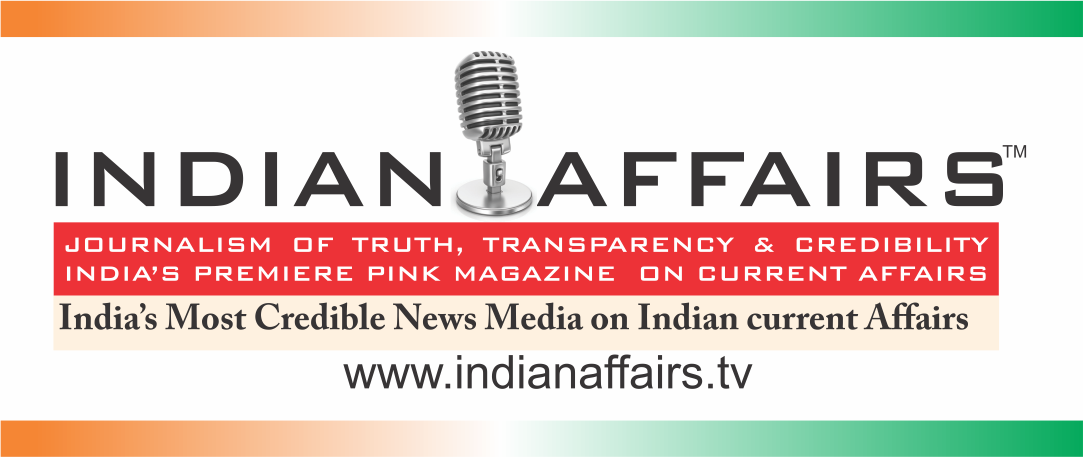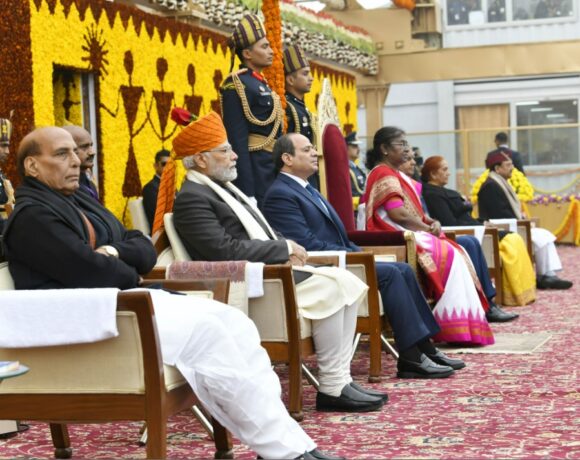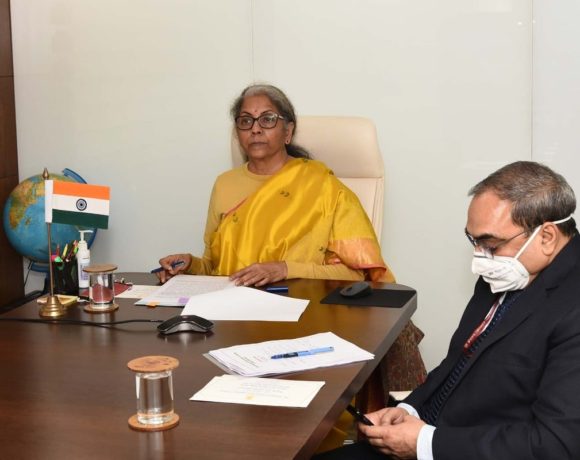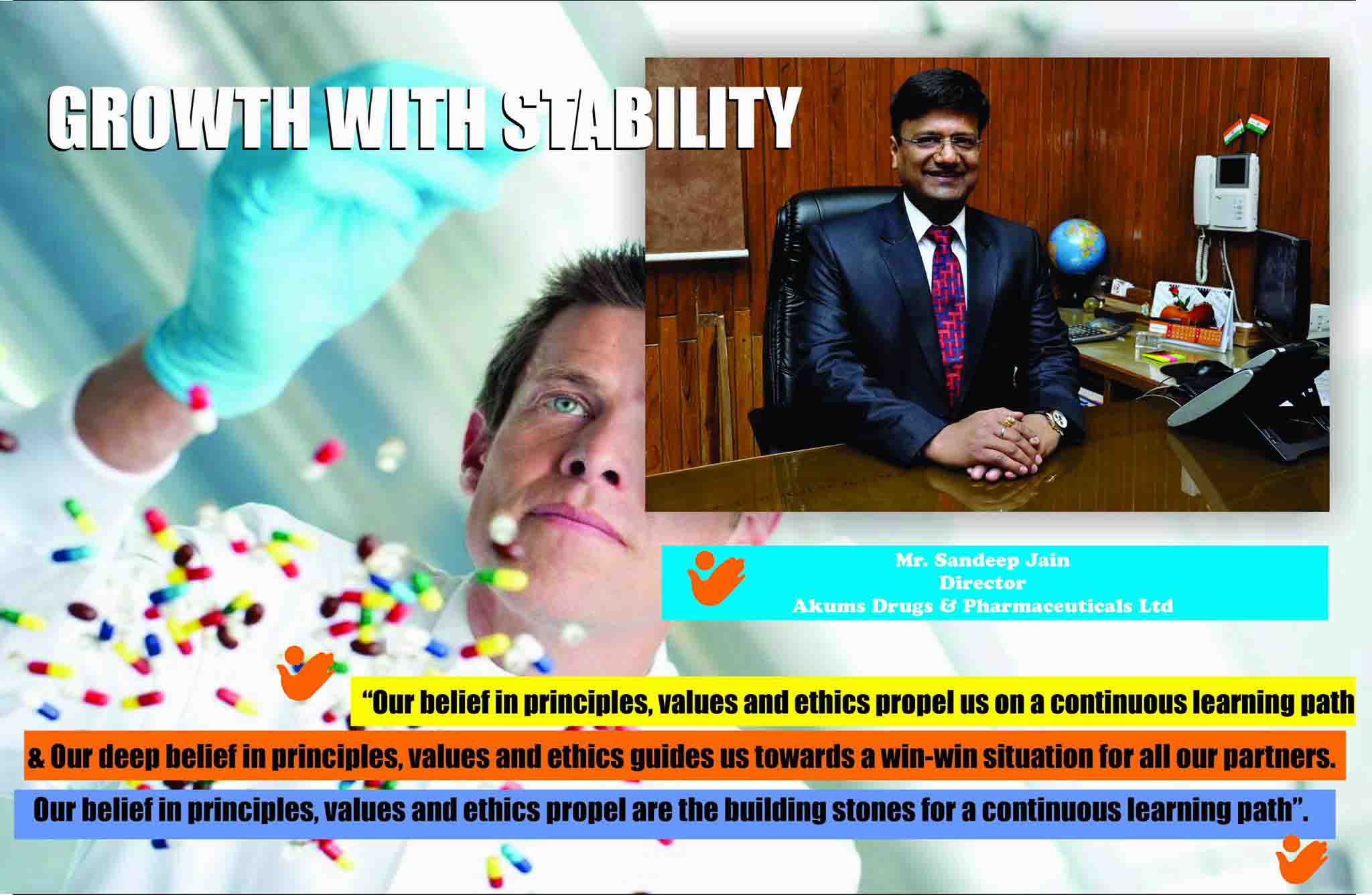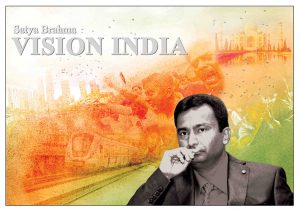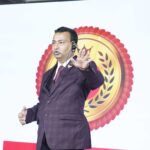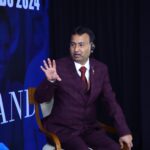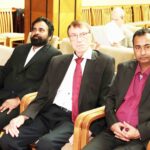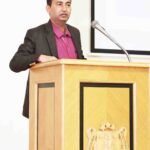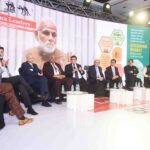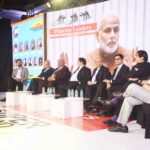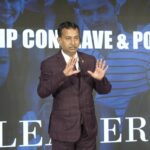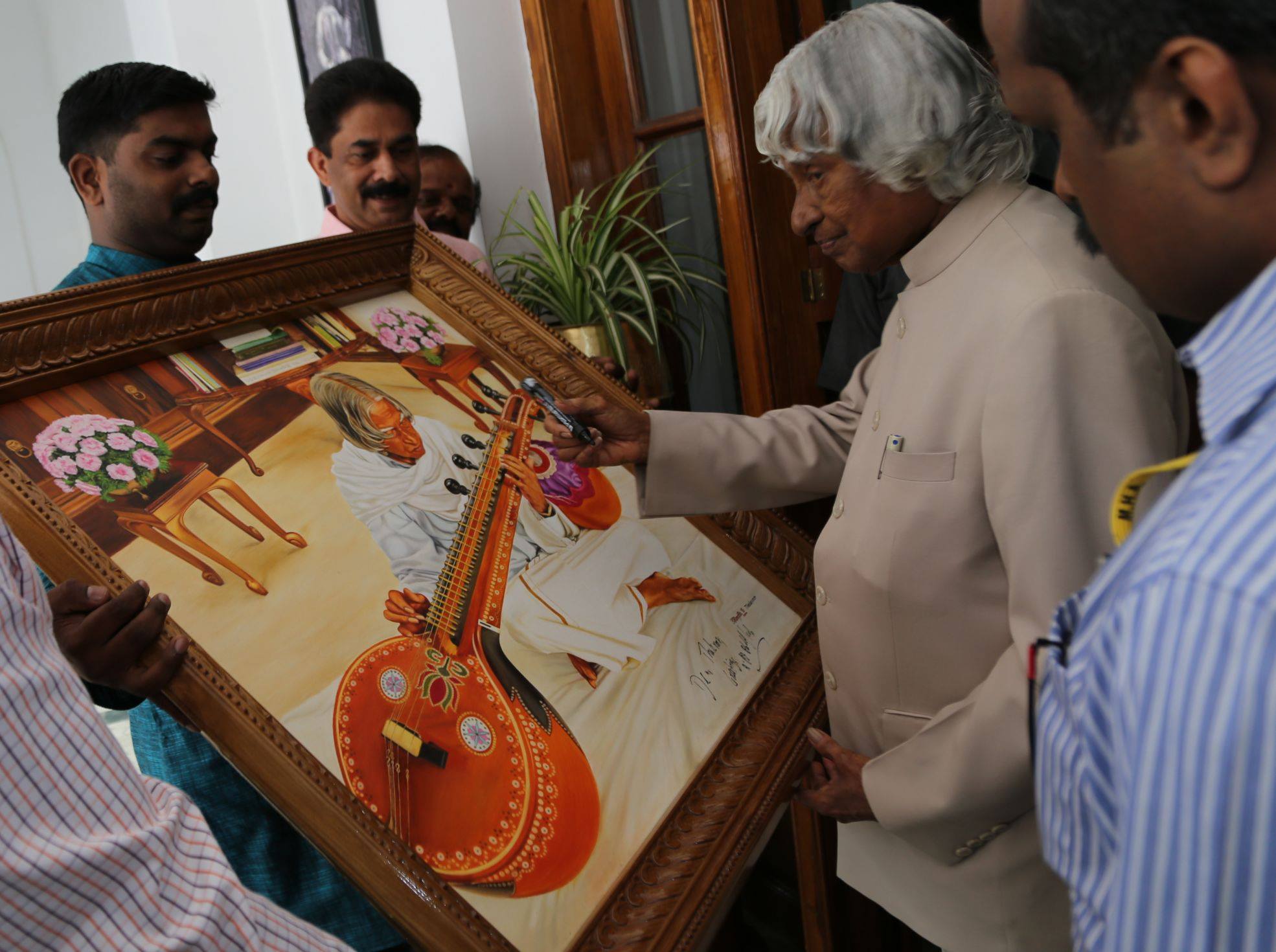

India’s Missile Man and Former President of India Dr APJ Avul Pakir Jainulabdeen Abdul Kalam (Abdul Kalam) has died on Monday following a cardiac arrest at a function in IIM-Shillong. He was 84.Earlier, he was was hospitalized in a very critical condition. Dr Abdul Kalam , was the 11th President of India who held the post from July 25, 2002 to July 25, 2007.He was a renowned scientist and is considered to be the main brain behind India’s space and missile programme. Meanwhile J&K Governor, N.N. Vohra, expressed heartfelt grief on hearing about the sad passing away of former President Dr. APJ Kalam and prayed for his soul resting in peace.
The Governor recalled his working closely with Dr. Kalam during 1985-1993 when Vohra was serving in the Defence Ministry and Dr. Kalam was heading DRDO’s crucial Integrated Missile Development Programme Hyderabad. Later, they worked together again when Dr. Kalam was the DRDO chief and Scientific Advisor to the Prime Minister and Vohra was Principal Secretary to the PM (1997-98). Vohra particularly recalled arranging for Prime Minister Gujral being briefed in January 1998 by Dr. Kalam, at the DRDO establishment at Hyderabad, about the strength of India’s nuclear inventory, where it was kept, and how guarded. Because of certain concerns about the crucial importance of maintaining the secrecy and integrity of the nuclear development programmee, Vohra recalls arranging a meeting in the Rashtrapati Bhawan, in February 1998, in which Dr. Kalam and Dr.Santhanam (a DRDO Scientist) briefed President Naryanan about the nuclear development Programme, when Prime minister Gujral and Vohra were the only others present.
Chief Minister, Mufti Mohammad Sayeed, has expressed deep shock and grief over the sad demise of former President of India and Bharat Ratna, Dr. APJ Abdul Kalam today.
Dr. Kalam collapsed while delivering lecture at the Indian Institute of Management in Shillong, Mehgalaya, and later passed away in the Bethany Hospital.
Paying rich tributes to India’s Missile Man, who was country’s 11th President, Mufti Sayeed said the nation has lost one of its true heroes and the void left behind by him will be difficult to fill. “He was a man of indomitable spirit and impeccable character whose popularity rose during his tenure as country’s President,” he said.
The Chief Minister expressed solidarity with the bereaved family of Dr. APJ Abdul Kalam in their hour of grief and prayed for peace to the departed soul.
Member Parliament and President, People’s Democratic Party (PDP), Mehbooba Mufti, has expressed deep sorrow and anguish over the passing away of former President and Bharat Ratna, Dr. APJ Abdul Kalam in Shillong today.
In her condolence message, Mehbooba described Dr. Abdul Kalam as a great nation builder, who was an inspiration to an entire generation of people in the country. “I am deeply saddened by the death of Dr. APJ Abdul Kalam. We have lost a great scientist and a youth icon,” she said in her message of condolence.
Mehbooba conveyed her sympathies to the bereaved family and prayed for peace to the departed soul
https://www.youtube.com/watch?v=-SIReRIAJZQ
Memories of the People’s President by Srijan Pal Singh
What I will be remembered for.. my memory of the last day with the great Kalam sir…
It has been eight hours since we last talked – sleep eludes me and memories keep flushing down, sometimes as tears. Our day, 27th July, began at 12 noon, when we took our seats in the flight to Guhawati. Dr. Kalam was 1A and I was IC. He was wearing a dark colored “Kalam suit”, and I started off complimenting, “Nice color!” Little did I know this was going to be the last color I will see on him.
Long, 2.5 hours of flying in the monsoon weather. I hate turbulence, and he had mastered over them. Whenever he would see me go cold in shaking plane, he would just pull down the window pane and saw, “Now you don’t see any fear!”.
That was followed by another 2.5 hours of car drive to IIM Shillong. For these two legged trip of five hours we talked, discussed and debated. These were amongsthundreds of the long flights and longer drives we have been together over the last six years.
As each of them, this was as special too. Three incidents/discussions in particular will be “lasting memories of our last trip”.
First, Dr. Kalam was absolutely worried about the attacks in Punjab. The loss of innocent lives left him filledwith sorrow. The topic of lecture at IIM Shillong was Creating a Livable Planet Earth. He related the incident to the topic and said, “it seems the man made forces are as big a threat to the livability of earth as pollution”. We discussed on how, if this trend of violence, pollution and reckless human action continues we will forced to leave earth. “Thirty years, at this rate, maybe”, he said. “You guys must do something about it… it is going to be your future world”
Our second discussion was more national. For the past two days, Dr. Kalam was worried that time and again Parliament, the supreme institution of democracy, was dysfunctional. He said, “I have seen two different governments in my tenure. I have seen more after that. This disruption just keeps happening. It is not right. I really need to find out a way to ensure that the parliament works on developmental politics.” He then asked me to prepare a surprise assignment question for the students at IIM Shillong, which he would give them only at the end of the lecture. He wanted to them to suggest three innovative ways to make the Parliament more productive and vibrant. Then, after a while he returned on it. “But how can ask them to give solutions if I don’t have any myself”. For the next one hour, we thwarted options after options, who come up with his recommendation over the issue. We wanted to include this discussion in our upcoming book, Advantage India.
Third, was an experience from the beauty of his humility. We were in a convoy of 6-7 cars. Dr. Kalam and I were in the second car. Ahead us was an open gypsy with three soldiers in it. Two of them were sitting on either side and one lean guy was standing atop, holding his gun. One hour into the road journey, Dr. Kalam said, “Why is he standing? He will get tired. This is like punishment. Can you ask a wireless message to given that he may sit?” I had to convince him, he has been probably instructed to keep standing for better security. He did not relent. We tried radio messaging, that did not work. For the next 1.5 hours of the journey, he reminded me thrice to see if I can hand signal him to sit down. Finally, realizing there is little we can do – he told me, “I want to meet him and thank him”. Later, when we landed in IIM Shillong, I went inquiring through security people and got hold of the standing guy. I took him inside and Dr. Kalam greeted him. He shook his hand, said thank you buddy. “Are you tired? Would you like something to eat? I am sorry you had to stand so long because of me”. The young lean guard, draped in black cloth, was surprised at the treatment. He lost words, just said, “Sir, aapkeliye to 6 ghantebhikhaderahenge”.
After this, we went to the lecture hall. He did not want to be late for the lecture. “Students should never be made to wait”, he always said. I quickly set up his mike, briefed on final lecture and took position on the computers. As I pinned his mike, he smiled and said, “Funny guy! Are you doing well?” ‘Funny guy’, when said by Kalam could mean a variety of things, depending on the tone and your own assessment. It could mean, you have done well, you have messed up something, you should listen to him or just that you have been plain naïve or he was just being jovial. Over six years I had learnt to interpret Funny Guy like the back of my palm. This time it was the last case.
“Funny guy! Are you doing well?” he said. I smiled back, “Yes”. Those were the last words he said. Two minutes into the speech, sitting behind him, I heard a long pause after completing one sentence. I looked at him, he fell down.
We picked him up. As the doctor rushed, we tried whatever we could. I will never forget the look in his three-quarter closed eyes and I held his head with one hand and tried reviving with whatever I could. His hands clenched, curled onto my finger. There was stillness on his face and those wise eyes were motionlessly radiating wisdom. He never said a word. He did not show pain, only purpose was visible.
In five minutes we were in the nearest hospital. In another few minutes the they indicated the missile man had flown away, forever. I touched his feet, one last time. Adieu old friend! Grand mentor! See you in my thoughts and meet in the next birth.
As turned back, a closet of thoughts opened.
Often he would ask me, “You are young, decide what will like to be remembered for?” I kept thinking of new impressive answers, till one day I gave up and resorted to tit-for-tat. I asked him back, “First you tell me, what will you like to be remembered for? President, Scientist, Writer, Missile man, India 2020, Target 3 billion…. What?” I thought I had made the question easier by giving options, but he sprang on me a surprise. “Teacher”, he said.
Then something he said two weeks back when we were discussing about his missile time friends. He said, “Children need to take care of their parents. It is sad that sometimes this is not happening”. He paused and said, “Two things. Elders must also do. Never leave wealth at your deathbed – that leaves a fighting family. Second, one is blessed is one can die working, standing tall without any long drawn ailing. Goodbyes should be short, really short”.
Today, I look back – he took the final journey, teaching, what he always wanted to be remembered doing. And, till his final moment he was standing, working and lecturing. He left us, as a great teacher, standing tall. He leaves the world with nothing accumulated in his account but loads of wishes and love of people. He was a successful, even in his end.
Will miss all the lunches and dinners we had together, will miss all the times you surprised me with your humility and startled me with your curiosity, will miss the lessons of life you taught in action and words, will miss our struggles to race to make into flights, our trips, our long debates. You gave me dreams, you showed me dreams need to be impossible, for anything else is a compromise to my own ability. The man is gone, the mission lives on. Long live Kalam.
Your indebted student,
Srijan Pal Singh
Born on 15th October 1931 at Rameswaram in Tamil Nadu, Dr. Avul Pakir Jainulabdeen Abdul Kalam, specialized in Aeronautical Engineering from Madras Institute of Technology. Dr. Kalam made significant contribution as Project Director to develop India’s first indigenous Satellite Launch Vehicle (SLV-III) which successfully injected the Rohini satellite in the near earth orbit in July 1980 and made India an exclusive member of Space Club. He was responsible for the evolution of ISRO’s launch vehicle programme, particularly the PSLV configuration. After working for two decades in ISRO and mastering launch vehicle technologies, Dr. Kalam took up the responsibility of developing Indigenous Guided Missiles at Defence Research and Development Organisation as the Chief Executive of Integrated Guided Missile Development Programme (IGMDP). He was responsible for the development and operationalisation of AGNI and PRITHVI Missiles and for building indigenous capability in critical technologies through networking of multiple institutions. He was the Scientific Adviser to Defence Minister and Secretary, Department of Defence Research & Development from July 1992 to December 1999. During this period he led to the weaponisation of strategic missile systems and the Pokhran-II nuclear tests in collaboration with Department of Atomic Energy, which made India a nuclear weapon State. He also gave thrust to self-reliance in defence systems by progressing multiple development tasks and mission projects such as Light Combat Aircraft.
As Chairman of Technology Information, Forecasting and Assessment Council (TIFAC) and as an eminent scientist, he led the country with the help of 500 experts to arrive at Technology Vision 2020 giving a road map for transforming India from the present developing status to a developed nation. Dr. Kalam has served as the Principal Scientific Advisor to the Government of India, in the rank of Cabinet Minister, from November 1999 to November 2001 and was responsible for evolving policies, strategies and missions for many development applications. Dr. Kalam was also the Chairman, Ex-officio, of the Scientific Advisory Committee to the Cabinet (SAC-C) and piloted India Millennium Mission 2020.
Dr. Kalam took up academic pursuit as Professor, Technology & Societal Transformation at Anna University, Chennai from November 2001 and was involved in teaching and research tasks. Above all he took up a mission to ignite the young minds for national development by meeting high school students across the country.
In his literary pursuit four of Dr. Kalam’s books – “Wings of Fire”, “India 2020 – A Vision for the New Millennium”, “My journey” and “Ignited Minds – Unleashing the power within India” have become household names in India and among the Indian nationals abroad. These books have been translated in many Indian languages.
Dr. Kalam is one of the most distinguished scientists of India with the unique honour of receiving honorary doctorates from 30 universities and institutions. He has been awarded the coveted civilian awards – Padma Bhushan (1981) and Padma Vibhushan (1990) and the highest civilian award Bharat Ratna (1997). He is a recipient of several other awards and Fellow of many professional institutions.
Dr. Kalam became the 11th President of India on 25th July 2002. His focus is on transforming India into a developed nation by 2020.
